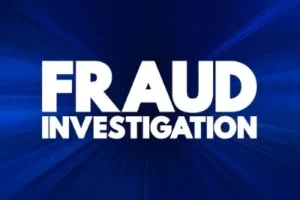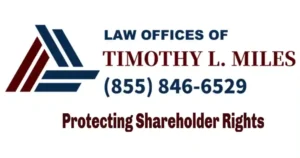Introduction to the Microstrategy Class Action Lawsuit
The MicroStrategy class action lawsuit seeks to represent purchasers or acquirers of MicroStrategy Incorporated d/b/a Strategy (NASDAQ: MSTR; STRK; STRF) securities between April 30, 2024 and April 4, 2025, inclusive (the “Class Period”). Captioned Hamza v. MicroStrategy Incorporated d/b/a Strategy, No. 25-cv-00861 (E.D. Va.), the MicroStrategy class action lawsuit charges MicroStrategy and certain of MicroStrategy’s top executives with violations of the Securities Exchange Act of 1934.
If you suffered substantial losses and wish to serve as lead plaintiff of the MicroStrategy class action lawsuit or just have general questions about you rights as a shareholder, please contact attorney Timothy L. Miles of the Law Offices of Timothy L. Miles, at no cost, by calling 855/846-6529 or via e-mail at tmiles@timmileslaw.com. Lead plaintiff motions for the MicroStrategy class action lawsuit must be filed with the court no later than July 15, 2025.
Read on for answers to six frequently asked questions form investors about the MicroStrategy class action lawsuit.
1. What Is the Lead Plaintiff Process Under the PSLRA?
The Lead Plaintiff process under the Private Securities Litigation Reform Act (PSLRA) is an essential mechanism designed to ensure that the most suitable and representative investor takes the forefront in a class action lawsuit. This process is particularly relevant in cases like the MicroStrategy class action lawsuit, where shareholders allege securities fraud or other financial misrepresentations.
Under the PSLRA, the court appoints a lead plaintiff to represent the class of affected investors. The lead plaintiff must have the largest financial interest in the case and must demonstrate that they can adequately represent the interests of all class members.

Upon the filing of a securities class action lawsuit, a notice is published to inform potential class members of the action and their right to move for lead plaintiff status. Interested parties then file motions, and the court evaluates these to determine who has the largest stake and is most capable of effectively overseeing the litigation. The chosen lead plaintiff takes on significant responsibilities, such as selecting and retaining counsel, making strategic decisions about how the case is pursued, and potentially negotiating settlements on behalf of the class.
In cases involving substantial financial losses, like those in the MicroStrategy class action lawsuit, having a competent and motivated lead plaintiff is crucial for achieving a favorable outcome for all investors involved. This process not only aims to align the interests of the lead plaintiff with those of the broader investor class but also seeks to avoid frivolous lawsuits by requiring substantial participation from those most affected. Ultimately, the lead plaintiff process under the PSLRA strives to enhance fairness and efficiency in securities litigation.
2. What Are the Allegations in the MicroStrategy Class Action Lawsuit?
Since 2020, MicroStrategy has increasingly focused on purchasing and holding bitcoin, a type of crypto-currency, as a long-term business strategy. According to the complaint, on January 1, 2025, MicroStrategy adopted the Financial Accounting Standards Board’s Accounting Standards Update No. 2023-08, Intangibles – Goodwill and Other – Crypto Assets (Subtopic 350-60): Accounting for and Disclosure of Crypto Assets (“ASU 2023-08”), which requires publicly traded companies to measure their crypto assets at fair value in their financial statements, with gains and losses from changes in the fair value of those assets recognized in net income in each reporting period.
The MicroStrategy class action lawsuit alleges that defendants throughout the Class Period made false and/or misleading statements and/or failed to disclose that:
- The anticipated profitability of MicroStrategy’s bitcoin-focused investment strategy and treasury operations was overstated; and
- The various risks associated with bitcoin’s volatility and the magnitude of losses MicroStrategy could recognize on the value of its digital assets following its adoption of ASU 2023-08 were understated.

The MicroStrategy class action lawsuit further alleges that on April 7, 2025, MicroStrategy disclosed that, following its adoption of ASU 2023-08, it recognized a $5.91 billion unrealized loss on its digital assets for the first quarter of 2025, which was expected to result in a net loss for the quarter. As a result, MicroStrategy warned investors that “[w]e may not be able to regain profitability in future periods, particularly if we incur significant unrealized losses related to our digital assets,” according to the complaint.
The MicroStrategy class action lawsuit alleges that on this news, the price of MicroStrategy stock fell nearly 9%.
3. What Are the Eligibility Criteria for Lead Plaintiff Appointment in the MicroStrategy Class Action Lawsuit
To be eligible for appointment as the lead plaintiff in the MicroStrategy lawsuit, an investor must meet the following criteria:
- Securities Acquisition: The investor must have purchased or acquired MicroStrategy Incorporated d/b/a Strategy (NASDAQ: MSTR; STRK; STRF) securities between April 30, 2024 and April 4, 2025.
- Financial Losses: The investor must have suffered financial losses as a direct result of the alleged securities fraud perpetrated by MicroStrategy and its executives.
- Typicality and Adequacy: The investor’s legal claims must be typical of those asserted on behalf of the class, and they must demonstrate their ability to adequately represent the interests of the entire class through experience, resources, and the absence of conflicts of interest.
It is crucial to note that both domestic and international investors who meet these criteria are eligible to seek appointment as the lead plaintiff in the class action lawsuit, as courts have consistently recognized the rights of non-U.S. investors in securities class actions.
4. What are the Benefits of Serving as a Lead Plaintiff in the MicroStrategy Lawsuit?
- Negotiating more competitive attorney fees and reducing litigation costs.
- Managing the litigation by overseeing the progress of the case and reviewing important filings.
- Participating in mediation and settlement discussions.
- Having a voice in decision-making processes regarding the settlement.
- No financial risk, as lead counsel covers all costs and expenses and are paid only if they secure a settlement or judgment recovery for the class
- Potentially enjoying long-term benefits from governance reform resulting from the litigation.
5. Who is Affected by the MicroStrategy Class Action Lawsuit?
The MicroStrategy class action lawsuit primarily affects investors who purchased shares during the period in which the alleged misconduct occurred. If you invested in MicroStrategy. during this time, you could be part of the affected class and eligible for compensation if the lawsuit succeeds.

Identifying whether you are part of the affected group is crucial for understanding your rights and potential benefits. The lawsuit may involve a specific time frame and set of circumstances that define the class of investors who can participate. Knowing these details will help you determine your eligibility and take appropriate action.
In addition to investors, the MicroStrategy lawsuit can also impact the company’s executives, board members, and other stakeholders. The outcome of the lawsuit could influence MicroStrategy’s reputation, financial stability, and future operations, affecting all parties associated with the company. Staying informed about the lawsuit’s progress is essential for anyone connected to MicroStrategy.
6. What Is the Securities Exchange Act of 1934?
The Securities Exchange Act of 1934 is a landmark piece of U.S. federal law designed to regulate the secondary trading of securities such as stocks and bonds. This comprehensive legislation was enacted following the stock market crash of 1929, aiming to restore investor confidence and maintain fair and orderly markets. The Act established the Securities and Exchange Commission (SEC), granting it authority to enforce securities laws, oversee securities transactions, and regulate the conduct of market participants.

855-846-6529
One of the key features of the Securities Exchange Act of 1934 is its requirement for companies with publicly traded securities to regularly disclose financial information. This transparency is intended to protect investors by providing them with the information necessary to make informed decisions. The Act also addresses various forms of fraud and insider trading, ensuring that all investors have equal access to critical market information.
In recent years, the Securities Exchange Act of 1934 has been cited in various high-profile legal cases, including the MicroStrategy lawsuit. This particular case highlights the Act’s role in addressing corporate misconduct and ensuring that companies adhere to strict reporting standards. The SEC’s enforcement actions in such cases underscore the importance of regulatory oversight in maintaining market integrity and protecting investor interests.
Overall, the Securities Exchange Act of 1934 remains a cornerstone of U.S. financial regulation, providing a framework for ethical practices within the securities industry. Its enduring relevance is evident in ongoing enforcement actions and legal proceedings, such as the MicroStrategy lawsuit, which continue to shape the landscape of corporate governance and investor protection.
Tips for Investors to Take to Protect their Interest in the MicroStrategy Lawsuit
Gathering and Organizing Relevant Evidence
In a securities class action lawsuit just like the MicroStrategy class action lawsuit, evidence is the cornerstone of building a compelling case. For shareholders, gathering and organizing relevant evidence is a critical step in substantiating claims of corporate misconduct. The evidence typically revolves around documents and communications that demonstrate the company’s misrepresentations or omissions, as well as the financial harm suffered by shareholders. Below are some steps you should take:
- Compile all financial statements, press releases, analyst reports, emails, and any internal documents that shed light on the alleged wrongdoing alleged in the MicroStrategy lawsuit.
- Meticulously document your investment history with the MicroStrategy, including dates of stock purchases and sales, quantities, and prices. This information is crucial for calculating damages and proving that the shareholder suffered financial losses as a result of the company’s actions.
- Maintaining detailed records not only strengthens the individual’s position in the lawsuit but also contributes to the overall strength of the MicroStrategy class action lawsuit by providing a clear picture of the impact on shareholders.
- Organizing this evidence in a systematic manner is equally important. Shareholders can create a comprehensive file of all relevant documents, categorized by type and date, to facilitate easy retrieval and review by legal counsel.

This preparation not only aids in the efficient prosecution of the MicroStrategy lawsuit, but also demonstrates the shareholder’s commitment and readiness to actively participate in the litigation process.
By thoroughly gathering and organizing evidence, shareholders lay a solid foundation for holding corporations accountable and seeking redress for their financial injuries.
Staying Informed: Monitoring Case Developments
In the fast-paced environment of securities class action lawsuits, staying informed about case developments is crucial for shareholders. As the MicroStrategy class action lawsuit, moves forward, new information and events can significantly impact the strategy and potential outcomes. MicroStrategy shareholders must actively monitor key milestones, such as court rulings, settlement negotiations, and any changes in the legal landscape. Keeping abreast of these developments ensures that shareholders are well-positioned to make timely and informed decisions.
Effective communication with legal counsel is essential for staying updated on case developments. Attorneys provide regular updates and analyses of the ongoing proceedings, helping shareholders understand the implications of each development.
This information is vital for assessing the potential risks and benefits of different courses of action, such as whether to accept a settlement offer or continue pursuing the MicroStrategy lawsuit.
By maintaining open lines of communication with their legal team, shareholders can remain engaged and proactive throughout the litigation process.
Shareholders can also benefit from following news sources and industry reports related to the MicroStrategy class action lawsuit and the defendant company. These sources can provide valuable insights into broader market trends, regulatory changes, and public perceptions that may influence the case.
By staying informed, shareholders can better anticipate shifts in the legal and financial landscape, enabling them to adapt their strategies and protect their interests effectively.
In securities class actions, knowledge is power, and staying informed is a key component of successful participation.
Contact Timothy L. Miles Today About a MicroStrategy Class Action Lawsuit
If you suffered losses in MicroStrategy stock, call us today for a free case evaluation about an MicroStrategy class action lawsuit. 855-846-6529 or tmiles@timmileslaw.com (24/7/365).
Timothy L. Miles, Esq.
Law Offices of Timothy L. Miles
Tapestry at Brentwood Town Center
300 Centerview Dr. #247
Mailbox #1091
Brentwood,TN 37027
Phone: (855) Tim-MLaw (855-846-6529)
Email: tmiles@timmileslaw.com
Website: www.classactionlawyertn.com
Facebook Linkedin Pinterest youtube






